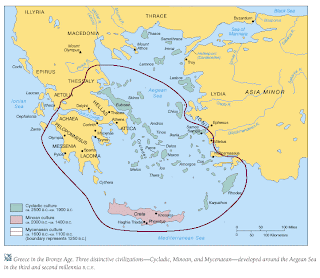Feudalism – a term used by historians to describe governmental system and the relationship between landowners and warriors; a term coined by historians to describe the type of government institutions as well as the general social and political relationships to existed among the warrior land holders in much of Europe during the Middle Ages
feudal compact – When the lord would grant a fief to the knight, who would then become the lord’s vassal; An arrangement between a lord between his vassal involving the exchange of property for personal service
fief – property; the piece of land that you get when you become a vassal to the king; A grant of land accompanying government responsibilities and power
vassal – servant; servant that is a knight that does not do nasty things
knight – a vassal to the lord; a warrior who has to go through training with an older night and has entered in the feudal compact with the lord
homage – A vassal’s act of promising loyalty and obedience to his land
serf – a peasant bound to a landowner; bound to the land and had a lifelong heredity status, no way to work your way up to night, someone who works the land and probably lives in a cottage
baron – A great lord who exercised government authority over vast family territory
peasantry – lowest group of estate, those who work, were not all serfs
estates – In the middle ages, the groups that made up society often defined as those who play (clergy), those who fight (nobility), and those who work (peasantry)
manor – Always belonging to the nobility, where the lord and the lady live; the principal farming property and social unit of a medieval community, usually belonging to a member of the feudal nobility or to a Church institution
three-field-system – used where two fields were planted )on in fall, one in spring and one field was left to reconstitute its fertility the they were rotated, divide into three parts, 2 for each seasons, one not growing another thing and them rotate to the one not used. Plant to and let the other one rest; a method of crop rotation designed to maintain the fertility of the soil and to provide for a regular supply of fall and spring crops
internal colonization – how they settled in and around Europe, you get some land and they began their villages on the land; the process of cultivating and settling in formerly wild land in medieval Europe
suburb – Residences that sprang up outside the walls of the town
guild – Merchants, craftsmen, and artisans formed their own groups of these, which regulated their trade and protected its members; An organization of merchants or craftspeople who regulated that activities of their members and set standards and prices
master – A craftsman who had the right to operate workshops, train others, and vote on guild business
journeyman – A licensed artisan who had served an apprenticeship and who was employed by a master and paid at a fixed rate per day
apprentice – A “learner” in the shop of a master
masterpiece – Once they become a journeyman after spending years learning as an apprentice and then working as a paid journeyman for a number of years, they have to complete this and have it please their master in order to become a master
water mill – a structure that uses a water wheel or turbine to drive a mechanical process such as flour, lumber or textile production, or metal shaping
iron plow - As it moves, the colter(the vertical blade) slices through the earth; the plowshare then rips the earth up from underneath; and the moldboard (beneath the handles) shoves against the earth, turning it over so that it settles as loose and fertile soil.


